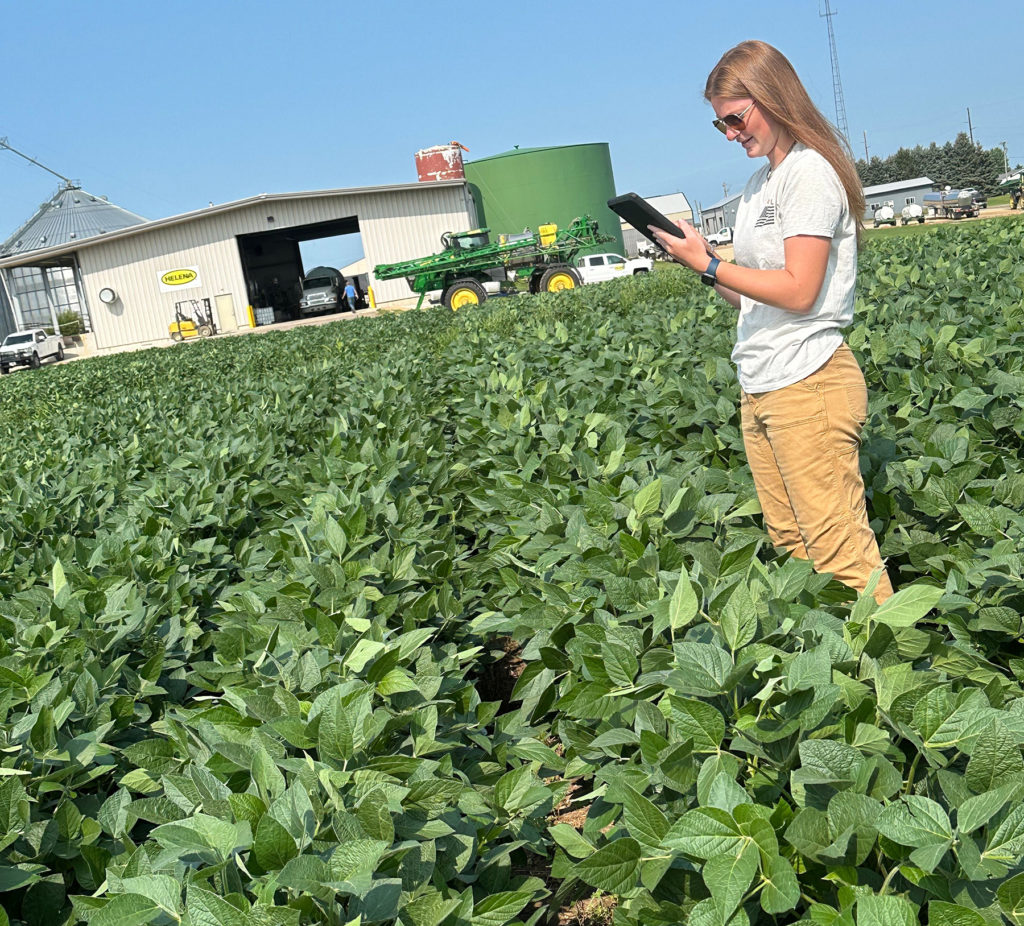For Immediate Release
Contact: Daniel Wackershauser, Marketing and PR Specialist
Phone: 608.822.2303
Mail: 1800 Bronson Blvd., Fennimore, WI 53809
Date of Release: October 30, 2024
Precision Agronomy program to launch in fall 2025 (with video)
College purchases 85 acres for the program
Fennimore -Precision agronomy is the “future of agriculture,” and Southwest Wisconsin Technical College will be offering the new program in fall 2025. Through critical industry input and extensive market research, the college has been approved to move the program forward.
Southwest Tech has committed $1.5 million to the precision agronomy program, including the purchase of 85 acres of land, of which, 80 acres are available for planting. The new land, which the college purchased for $1.265 million, will allow for an expanded lab area. It is located near the current Agricultural Demonstration Lab on Highway 18, near County Highway F. Students are currently using the land for soil sampling and will be planting crops in the spring. According to Andrew Dal Santo, agriculture instructor at Southwest Tech, the goal is to keep corn and soybeans in rotation on that land. This new, large acreage will allow the college “to have the opportunity to have that technology do what it’s supposed to do.”
“This is an investment in our students, more than anything,” said Dr. Jason Wood, Southwest Tech president. “This new opportunity will keep them updated on the latest technology being used in agriculture and how that technology can improve their operations. They will be better prepared to enter the industry with these new skills.”
“Return on investment is critical to the success of agriculture in our service district,” said Kim Maier, executive dean at Southwest Tech. “This new program will provide an emphasis on data-driven precision, followed by sustainable practices in agriculture, leading to improved efficiencies and profitability.”
According to Dal Santo, who will be leading the program, precision agronomy is the understanding of the basics of agronomy first, and then using data to enhance it. The goal is to produce the highest possible yield from every acre, using data to inform decisions. “You get a good understanding of weeds, fertilizer first, and how to plant, how to harvest, and then dive into the data of that, using the latest technologies,” he said.

Those state-of-the-art technologies include using drones coordinated with GPS points, and enhanced monitoring systems in the machinery, along with other tools. The drones are used to fly over crops multiple times during the growing season. They will measure how green the crop is and how prevalent disease and insect growth is within those crops. The students will then be able to make recommendations for the crops with that data, and other information they collect.
The program’s focus on technology is designed to be used to gather data, which can help make important decisions, such as when to apply fertilizer, at what rate, and what hybrid seeds to select, among others. “If I can get the students to understand the data and everything that comes along with the precision agronomy side of things, making those decisions is going to be easier,” said Dal Santo.
Graduates from the program will work in a variety of areas, including at agronomy centers, co-ops, implement dealerships, or on a farm. “We are committed to building a talent pipeline for precision agronomy,” said Maier. “Our graduates will be proficient in the latest precision agronomy technologies; optimizing operations, increasing efficiency and boosting profitability from day one.”
“We are definitely stepping up our game here,” said Dal Santo. “It’s nice to think about the technology that’s out there, but actually having the ability to use it and have that experience and boots on the ground, putting students in the driver’s seat to work that equipment and technology, is basically my overall goal and vision is for the program.”
In addition to the advantages for students, the new program will expand partnerships with area agriculture producers. “They are excited to hear that we are going that direction,” said Dal Santo. “They see the need for it. They are implementing technology every year. There is always something new. They are definitely excited to see this program up and running.”
As an instructor, Dal Santo is looking forward to getting this program off the ground. “This is probably the most exciting thing I’ve done when it comes to the ag industry,” he said. “Selling seed and servicing farmers was one thing. I loved helping them bring their operation to the next level, whether it was through fertilizer or seed recommendations, but being able to help the young and up-and-coming farmers, the students, go back to their farm or to help a co-op is awesome. And, this program is definitely going to get them to the next level.”
“This is the future of agriculture,” said Maier. “And, we are there. The college is committed.”
• Anyone who is interested in applying, can go to www.swtc.edu/apply and select “Agronomy.”
| Southwest Wisconsin Technical College, is one of 16 institutions that comprise the Wisconsin Technical College System. The college was recently named a top 10 finalist for the Aspen Prize for Community College Excellence. Southwest Tech offers more than 60 programs in a wide variety of disciplines. Courses are offered on campus, online, HyFlex and in a blended format. The college provides apprenticeship, certificate, technical diploma, and associate degree programs that respond to district workforce needs and prepare student for family-sustaining jobs and career advancement. |
